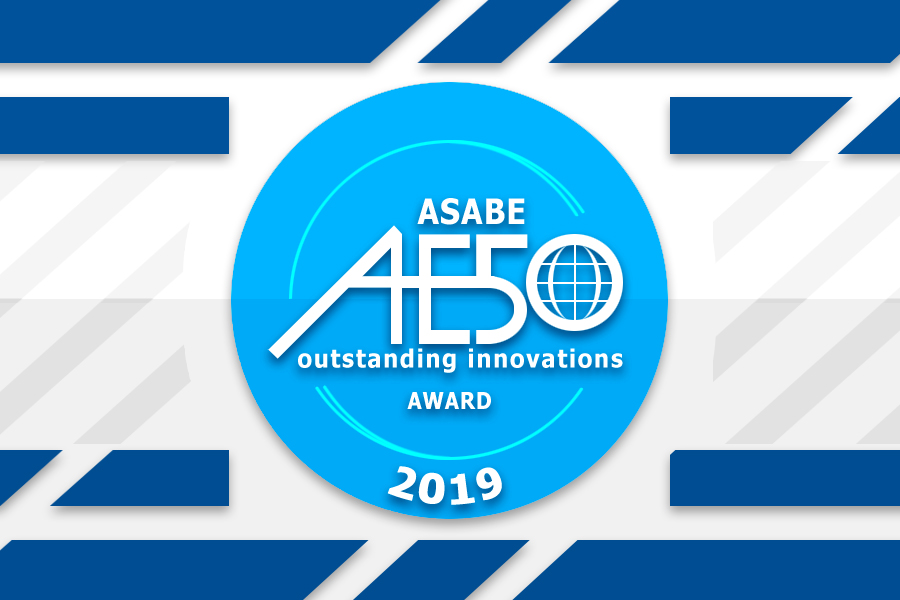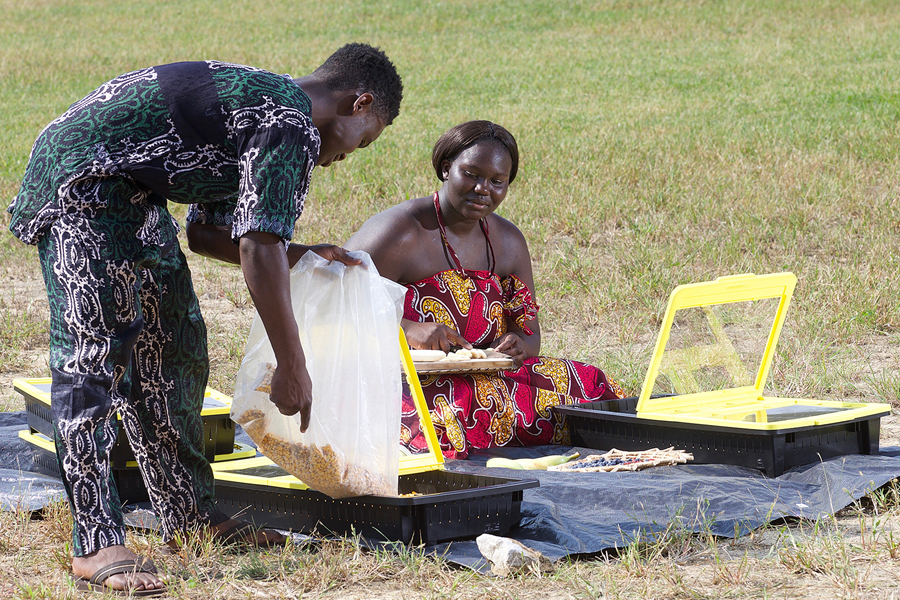Purdue solar device to dry grains, other food products and fight waste wins national product design award
At Purdue University, something is being done. The American Society of Agricultural and Biological Engineers named a Purdue-developed simple solar device, called “DEHYTRAY,” used to dry grains, fruits, vegetables and other food products as a winner of its 2019 AE50 product design award. The DEHYTRAY is trademarked as a drying device by JUA Technologies with the U.S. Patent and Trade Office.

The annual award honors the most innovative engineering products in the food and agriculture industries and helps introduce them to the public. DEHYTRAY is recognized for its potential to transform food-drying processes.
The concept for the DEHYTRAY was developed as part of the Purdue-led U.S. Agency for International Development (USAID) Feed-the-Future project for Food Processing and Post-Harvest Handling. The DEHYTRAY tray is being tested overseas by USAID-FPL project (maize) in Senegal and Kenya, USAID Horticulture Lab project (apricots) in Tajikistan and USAID/USDA-FAS project (grains and specialty crops) in Nigeria, as well as locally for small and mid-size growers of specialty crops in Indiana, Georgia and California under a U.S. Department of Agriculture-National Institute of Food and Agriculture funded project.
The technology is being commercialized by JUA Technologies International LLC, a Purdue-affiliated startup created by Klein Ileleji, a professor at Purdue’s Department of Agricultural and Biological Engineering, and Reiko Habuto Ileleji, who earned her Ph.D. from Purdue’s College of Education. Jua is the Kiswahili word for sun.
The DEHYTRAY product design for manufacture was a collaborative team effort at JUA Technologies led by Klein Ileleji and product designer, Heeju Kim, who is a visiting researcher at the Purdue University School of Design and at the University of Tokyo School of Information and Communication Engineering. Valuable design input from an Indiana-based product manufacturer and product design consultant was useful to get the product manufacturable, user friendly and functioning according to design requirements.
DEHYTRAY can dry products faster than the traditional open-sun drying technique by 24 hours. Ileleji believes the technology could be the answer for small-scale farmers.
“Temperatures inside the DEHYTRAY are doubled compared to conventional drying methods that rely on the sun, thereby achieving a faster drying rate, especially on cloudy days,” Ileleji said.

The innovative design of the portable device requires minimal setup time as well as minimal cleaning maintenance. The design allows products placed in the device to be exposed to the maximum amount of solar energy.
“The clear cover allows maximum exposure of the product to solar energy, protects the crop from pilferage by livestock or rodents, and protects the crop from rain,” Ileleji said.
Every year, ASABE receives submissions from around the world to be considered for the AE50 award. As the winner, JUA Technologies will have its DEHYTRAY featured in the special issue of ASABE’s magazine, Resource: Engineering & Technology for a Sustainable World. This innovation aligns with Purdue's Giant Leaps celebrating the university’s global advancements made in health, space, artificial intelligence and sustainability highlights as part of Purdue’s 150th anniversary. Those are the four themes of the yearlong celebration’s Ideas Festival, designed to showcase Purdue as an intellectual center solving real-world issues.
JUA Technologies received entrepreneurial support from the Purdue Foundry and funding through the Purdue Ag-celerator Fund and the Elevate Purdue Foundry Fund.
Technology used by JUA Technologies International LLC has been licensed through the Purdue Office of Technology Commercialization.
To place orders and to stay updated on regular promotions by the company visit JUA Technologies International.
Source: Purdue News Room
